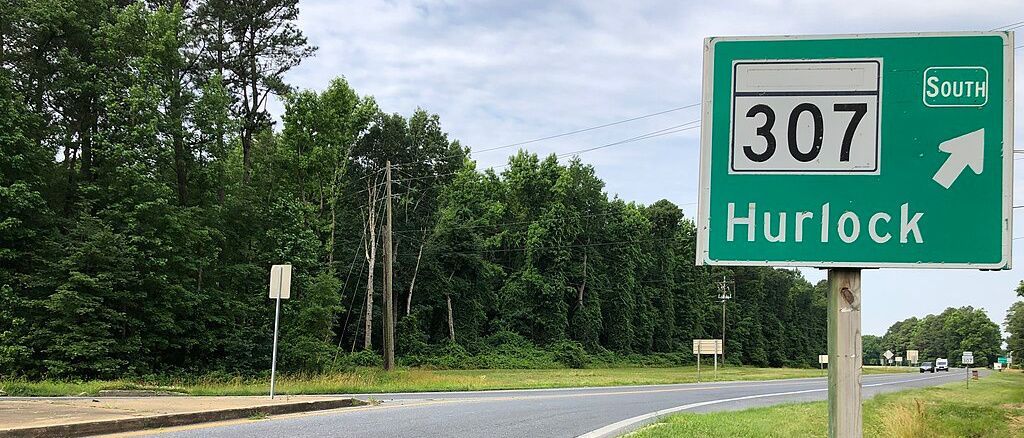If Republicans Take Control of the Government

A lot is riding on this year’s elections. Never have so many extreme-right candidates with so little regard for truth been candidates for public office.
Writing in the Washington Post, Dana Milbank describes the House GOP candidates in 2022 as “a motley assortment of election deniers, climate-change deniers, QAnon enthusiasts, and Jan. 6 participants who propose to abolish the FBI and ban abortion with no exceptions, among other things.”
Ditto for GOP candidates for United States Senate, governor, other statewide offices, and local offices. We have our share of these candidates across the Eastern Shore. As voters, we must educate ourselves as to the background and agenda of the people on the ballot in our communities. The consequences of not doing so will be far-reaching and long lasting.
Both the New York Times and the Washington Post have reported on the large number of ultra-right-wing election deniers and enablers running for office in 2022. The Post counts 291 election deniers on ballots nationwide (with 174 of these in safe red districts), and writes: “By next year, election deniers could be in charge of their states’ elections, including in key swing states for the 2024 presidential race.”
The Times reports that claims by public officials and candidates that Trump lost in 2020 only because of fraud “are especially worrisome for the future of American democracy because they suggest that those same officials might be willing to overturn a future election result and hand power to the rightful loser.”
As Heather Cox Richardson writes in her daily Letters from an American, “Modern-day Republicans appear to reject not only the idea they could lose an election fairly, but also the fundamental principle, established in the Declaration of Independence, that all Americans have a right to consent to their government.”
That’s what we voters are up against.
Traditional wisdom holds that the president’s party will lose seats in Congress at the mid-term mark. The Democrats gained ground on what looked to be a likely Republican rout last spring, but the momentum continues to swing back and forth as factors change and we get closer to the election.
In the House, Republicans can take the majority by flipping just five seats; FiveThirtyEight gives the Republicans a 7-in-10 shot of flipping at least that many. In our congressional race on the Eastern Shore, Rep. Andrew P. Harris, a House Freedom Caucus member and 2020 election denier, is favored to keep his 1st District seat in Maryland. (Four additional election deniers are running for U.S. House of Representatives in Maryland, in the 2nd, 5th, 6th, and 7th Districts, but they are not favored to win.)
If Republicans gain control of the House, and with election deniers forming a strong voting bloc, they likely would:
- Disband the House Select Committee to Investigate the January 6 Attack on the U.S. Capitol, and retaliate against Democrats for the investigation
- Initiate expensive and time consuming “conspiracy-laden political investigations” of Hunter Biden, Anthony Fauci, the withdrawal from Afghanistan, and others
- Impeach Joe Biden, Merrick Garland (attorney general), Alejandro Mayorkas (secretary of Homeland Security), and others for contrived reasons
- Cripple the FBI and block further investigation or prosecution of Trump and his allies
- Repeal the Affordable Care Act and prescription drug cost containment measures
- Cut off aid to Ukraine
- Enact a nationwide ban on abortions, a national don’t say gay law, and limit other constitutional freedoms
- Cut “non-discretionary spending” — Social Security and Medicare — to pay for the 2017 tax cuts
- Extend Trump’s tax cuts, pushing the economy into an “inflation tailspin”
- Use the debt ceiling to get spending concessions, which would result in chaos caused by the U.S. defaulting on its debts and trigger automatic cuts to Social Security and Medicare
- Shut down the government to get their way
Republicans can take the majority in the Senate by flipping one seat. FiveThirtyEight gives Democrats a two-in-three chance of holding control of the Senate; Sen. Chris Van Hollen has a 99% chance of keeping his Senate seat. (Van Hollen’s opponent, Chris Chaffee, is an ultra-right-wing MAGA election denier.)
If the Republicans gain control of the Senate, they are likely to:
- Stop all future Biden policies and block all Biden legislative initiatives, including measures to mitigate climate change
- Attempt to change American foreign policy priorities
- Block Biden’s nominees to be federal judges, including any Supreme Court vacancies; block confirmation of executive branch appointees
- Consider implementing Rick Scott’s proposal to sunset all federal legislation after five years and require reauthorization to continue Social Security, Medicare, and Medicaid benefits, among others
Luckily, even if the GOP controls both chambers of Congress they will not be able to advance their own legislation, as the president will still have veto power. But their power to create chaos will be great, and the next two years could well be painful and unpleasant.
Maryland is a solid blue state and the Republican candidates for statewide office on the ballot this fall — governor, lieutenant governor, attorney general, comptroller — are not likely to get elected.
FiveThirtyEight gives Wes Moore, the Democratic candidate for governor, a 99% chance of being elected. Endorsed by Trump, Dan Cox, Moore’s opponent, is an election denier. If elected, Cox would attempt to govern despite a Democratic legislature.
Like Gov. Larry Hogan, he could veto legislation that doesn’t align with his priorities, but would likely be overridden. Even so, like Hogan, Cox could block funding of programs enacted over his veto, preventing their implementation, and could shape the way state agencies are managed. Cox’s priorities would include outlawing abortion, cutting taxes, trying to change public schools’ curriculum, removing mask and vaccination requirements, and expanding charter schools to the detriment of public schools. Additionally, the governor appoints the Board of Elections (as members’ terms expire, and with the consent of the Maryland Senate); the Board is the body that governs state and federal elections.
In the race for attorney general, a recent Goucher College poll has Del. Anthony Brown, Democrat, leading Michael Peroutka, his Republican opponent, by a large margin. Peroutka has promised to support Maryland laws only if they do not, in his opinion, conflict with God’s law; this includes Maryland’s abortion and same sex marriage guarantees. He has promised to investigate alleged discrepancies and anomalies in recent elections in Maryland. He has pledged to take legal action against Hogan for imposing mask and vaccine requirements during the pandemic. The Maryland Democratic party has said, “He’s racist, he’s sexist, and he’s dangerous.” His election would be guaranteed to waste an incredible amount of time, money, and energy.
Locally, school board races are non-partisan by law in Maryland, but the Republican party has turned them into partisan contests in many places. Check out the candidates in your local school board races to find out if they are alt-right extremists with racist, misogynistic, homophobic, and anti-public school agendas. In some places (Florida, Tennessee), school boards have been taken over by Moms-for-Liberty candidates who have imposed these extreme agendas. In other places, the election of obstructionist alt-right candidates has made carrying out the normal business of school boards difficult to impossible.
This is a consequential election. We cannot afford to be complacent or resigned to the worst. Share information. Vote. Urge your family and friends to vote. It’s crucial!
Jan Plotczyk spent 25 years as a survey and education statistician with the federal government, at the Census Bureau and the National Center for Education Statistics. She retired to Rock Hall.
Common Sense for the Eastern Shore







